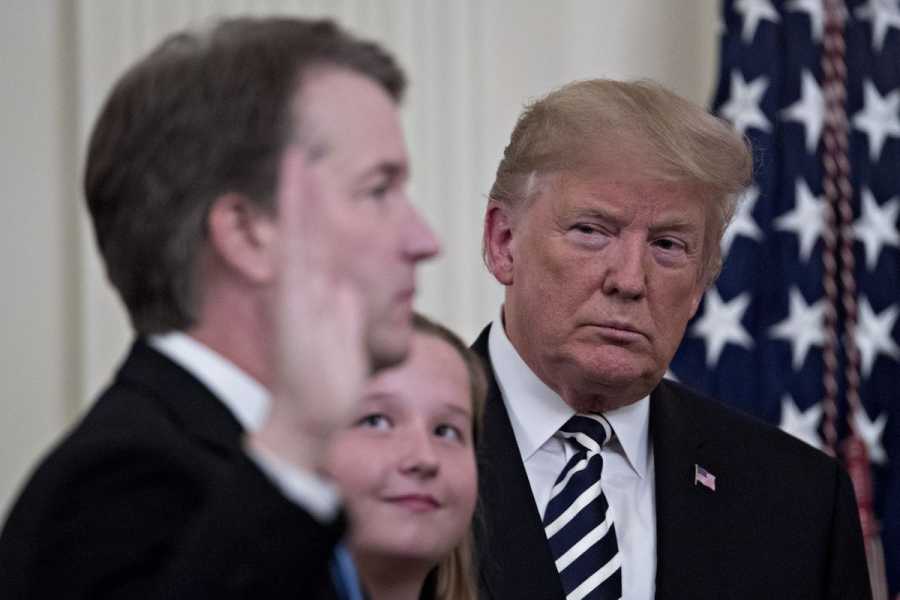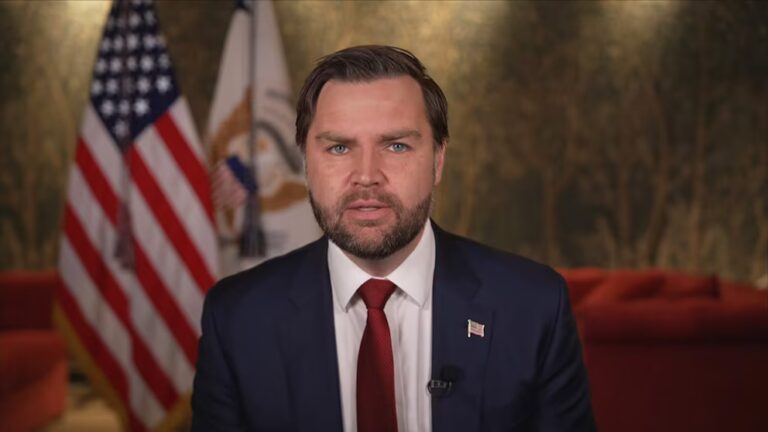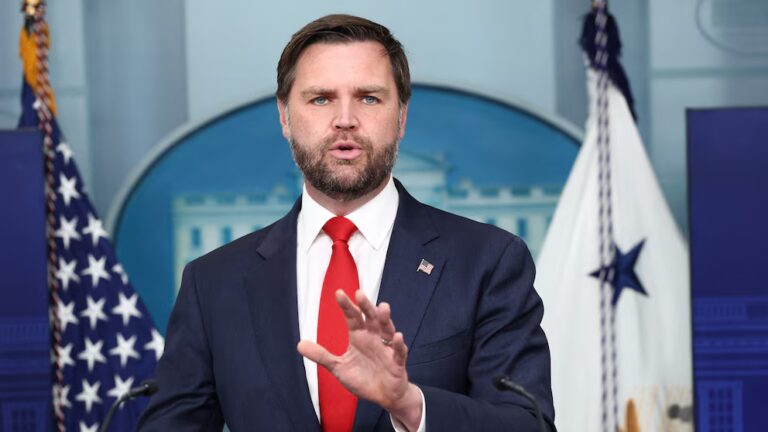The justices had their shot to hear Trump’s immunity appeal. Now they need to stop delaying his criminal trial.

Former President Donald Trump at the swearing-in of Justice Brett Kavanaugh. Getty Images Ian Millhiser is a senior correspondent at Vox, where he focuses on the Supreme Court, the Constitution, and the decline of liberal democracy in the United States. He received a JD from Duke University and is the author of two books on the Supreme Court.
On Tuesday, a federal appeals court handed down two widely anticipated documents rejecting a particularly unpersuasive legal argument by former President Donald Trump.
The first was a 57-page opinion rejecting Trump’s claim that he is immune from prosecution for his failed attempts to overthrow President Joe Biden’s victory in the 2020 election. Trump claimed he was immune because the president cannot be prosecuted for “official acts” he engages in while in office. But this argument borders on frivolousness, and it would have had astonishing implications if the courts actually bought it — which they did not.
The second, more important document that the United States Court of Appeals for the District of Columbia Circuit handed down Tuesday is a single-page judgment that effectively lays out the schedule for resuming Trump’s federal prosecution for attempted election theft.
It’s unlikely that either Trump or his lawyers actually thought the courts would rule that sitting presidents have a right to commit crimes. Instead, Trump’s legal strategy is to delay his criminal trials as much as possible, in the hopes that he will be elected president before he is convicted and then can order the Justice Department to drop his federal prosecutions.
Trump’s immunity claim is part of this strategy. Often, when an appeals court hears a case, the trial court that was previously assigned that case loses jurisdiction over the matter until the appeal is resolved.
Thus, by presenting this immunity argument to the DC Circuit, Trump stripped Judge Tanya Chutkan, the federal judge hearing his election theft trial, of jurisdiction over the case. As a result, Chutkan was forced to delay his criminal trial until that appeal is over. Last Friday, she officially postponed Trump’s trial, which was supposed to begin on March 4.
And that brings us to the details of the second document the DC Circuit handed down on Tuesday, which lays out both how Trump can delay this case further and how it can be set back on track.
It’s now up to the Supreme Court to decide whether to delay Trump’s trial even more
Ordinarily, when a federal appeals court hands down an opinion, that decision does not take effect immediately. The decision generally becomes final, and jurisdiction over the case returns to the trial court, after the appeals court issues something called a “mandate.” This mandate normally does not issue until several weeks after the court hands down its decision.
The purpose of this delay is to give the parties sufficient time to seek a rehearing or otherwise challenge the court’s initial decision.
In the Trump case, however, the DC Circuit wants to fast-track this process. Its judgment states that Chutkan will regain authority over the case at the end of February 12 — next Monday — unless Trump seeks a delay of this mandate from the Supreme Court. Should that happen, the mandate will issue (and Judge Chutkan will regain control of the case) upon “the Supreme Court’s final disposition” of Trump’s request to delay the mandate.
So the most important question looming over Trump’s election theft case is what the Supreme Court does next. Trump’s lawyers will almost certainly ask the Supreme Court to stay the DC Circuit’s mandate, as part of a formal request that the justices hear Trump’s immunity claim. If the Supreme Court grants that request, that will further delay Trump’s criminal trial — potentially until it is too late for Trump to be tried prior to the election.
There are two very good reasons, however, for the Supreme Court to give this case a miss.
One is that Trump’s arguments are laughably weak. At oral arguments in this case, known as United States v. Trump, Judge Florence Pan asked Trump’s lawyer if a former president could be prosecuted if he sold pardons or military secrets, or if he ordered “SEAL Team 6 to assassinate a political rival.” The former president’s lawyer responded that, under Trump’s legal theory, a president who ordered such a murder would be immune from prosecution unless he was first impeached and convicted by the Senate.
Do we really need the highest court in the land to weigh in on whether the president of the United States is above the law, and is even immune from prosecution for attempting to overthrow the duly elected government of the United States?
The other reason for the Supreme Court to avoid this case is that it already had one chance to do so, and it turned the case away.
In December, special counsel Jack Smith asked the Supreme Court to bypass the DC Circuit and immediately hear Trump’s immunity appeal. This was Smith’s attempt to prevent the delay that occurred while the DC Circuit was considering this case. But the justices, in a big victory for Trump, rejected Smith’s request.
That decision by the justices led to the very delay that has kept this case on hold.
If the Supreme Court were to take up Trump’s appeal now, that would only delay things more. Such a move would prevent the DC Circuit’s mandate from issuing, possibly for months, and it would keep Judge Chutkan from moving forward with Trump’s criminal trial. And Supreme Court review of this case would serve no legitimate purpose, because we don’t really need another court to tell us that the president can’t order Navy SEALs to assassinate his political rivals.
The justices had their shot to hear this case, and they turned it down.
If the Supreme Court does want to put this case back on track, it could do so in two ways. The most straightforward way would be to immediately deny Trump’s request to hear the case, and to delay the DC Circuit’s mandate past next Monday. Alternatively, the Court could issue a rare order known as a “summary affirmance,” which would mean that the justices would affirm the DC Circuit’s decision without waiting for briefing or oral argument.
Should the Court go the other route, however, and decide that it needs to review this case, that would be an enormous gift to Trump — one that could potentially lead to him getting off scot-free without ever being tried for his attempt to steal an election.
Sourse: vox.com






